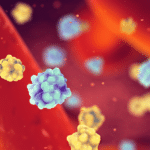How do cannabinoids affect memory and learning? It seems like a simple question, but scientists study its answer in complex ways. The kind of memory in question, the species tested, the animals’ age and sex, and so on, all affect the answer. So, scientists at Kings College in London compiled 195 articles on cannabinoids and memory for review.
How do cannabinoids affect memory and learning? It seems like a simple question, but scientists study its answer in complex ways. The kind of memory in question, the species tested, the animals’ age and sex, and so on, all affect the answer. So, scientists at Kings College in London compiled 195 articles on cannabinoids and memory for review. They first separate spatial and non-spatial memory, as these appear to be different kinds of cognition. Unsurprisingly, CB1 receptor agonists, like THC, anandamide, and numerous synthetic cannabinoids impaired non-spatial memory. (They had no effect on spatial memory.) But when they separated the analysis by the efficacy of the drug (roughly meaning the maximal effect it can have) and the species, the story changed. In rodents THC, which has a lower efficacy than other cannabinoids, did not show a consistent effect on memory, although synthetic cannabinoids and anandamide did. Additionally, studies that applied cannabinoids chronically over time saw a tolerance to the memory-impairment — that is, humans and other animal tend to acclimate to CB1 activation over time. This doesn’t disprove human experience — and the researchers did see an effect of THC acutely in humans — rather it highlights differences between species.
The authors don’t speculate about what causes species differences, but we will. One important feature of the endocannabinoid system is the presence of unique FAAH enzymes in rodents and humans. Another species difference is that higher levels of the neurotransmitter adenosine in some animals can diminish cannabinoids’ influence over memory. Despite the sometimes-amnesic effect of activating CB1, the researchers note that simply inhibiting the receptor doesn’t appear to improve memory. There are many complications layered onto the London scientists’ data. For example, cannabinoids specifically suppress fear-memories, but many experimental settings are traumatic for the animals involved. This can switch the effect of cannabinoids. Aforementioned species differences, and the biphasic effect gets in the way of a typical interpretation of the linear dose response. Although not too important for the average medical or recreational user, this study consolidates a significant and useful set of data for future research on cannabinoids and memory.
Adrian Devitt-Lee is a research scientist and longtime Project CBD contributor. © Copyright, Project CBD. May not be reprinted without permission.







